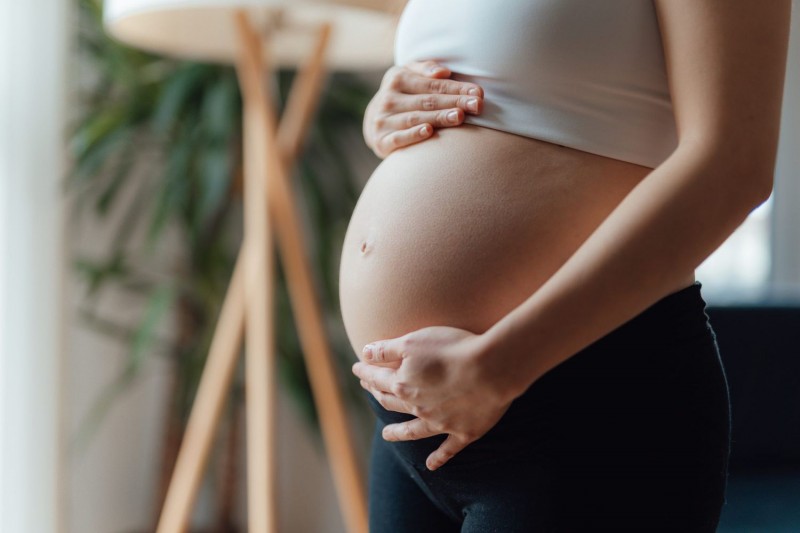
During pregnancy, maintaining a careful and balanced diet is crucial for the well-being of both the mother and the developing baby. Doctors often advise pregnant women to exercise moderation in their food choices, considering the direct impact on the fetus. Here, we discuss some items that should be avoided during pregnancy, based on international studies.
1. Raw Papaya:
Raw papaya is often discouraged during pregnancy due to its potential to induce uterine contractions. The latex present in papaya contains substances that can stimulate contractions and may lead to a miscarriage. While papaya is rich in minerals, calcium, fiber, flavonoids, and carotenoids, pregnant women are advised to avoid it to minimize the risk of premature labor.
2. Alcohol:
Consuming alcohol during pregnancy is strongly discouraged as it can have serious implications for fetal development. Even small amounts of alcohol can lead to fetal alcohol syndrome, causing physical and intellectual disabilities. The American College of Obstetricians and Gynecologists recommends complete abstinence from alcohol during pregnancy to ensure the baby's healthy development.
3. Excessive Salt:
While maintaining a balanced diet is essential during pregnancy, excessive salt intake should be avoided. High salt levels can lead to elevated blood pressure, which is not only detrimental to the mother's health but may also contribute to swelling in the face, hands, and feet. Moderation in salt consumption is advised to mitigate these risks.
4. Chinese Food with MSG:
Chinese food often contains monosodium glutamate (MSG), a flavor enhancer. MSG can contribute to high blood pressure, posing risks for pregnant women. Additionally, soy sauce in Chinese food contains a significant amount of salt, further increasing the risk of elevated blood pressure. Limiting the consumption of Chinese food during pregnancy is recommended.
5. Raw Eggs:
Raw eggs carry the risk of Salmonella contamination, which can lead to food poisoning. During pregnancy, when the immune system is weakened, the risk of complications is higher. Symptoms such as nausea, diarrhea, abdominal pain, fever, etc., can be severe. Cooking eggs thoroughly eliminates this risk, making them a safer option during pregnancy.
6. Pineapple:
Pineapple is surrounded by misconceptions regarding its safety during pregnancy. While some believe it increases the risk of miscarriage, there is no universal truth to this. Unless a woman is allergic or experiences adverse reactions, moderate consumption of pineapple is generally considered safe during pregnancy.
7. Artificial Sweeteners:
Artificial sweeteners are generally safe during pregnancy. However, individuals with phenylketonuria (PKU), a genetic disorder, should exercise caution as some sweeteners contain phenylalanine. PKU inhibits the breakdown of phenylalanine, and excess levels can be harmful. Pregnant women with PKU should opt for sweeteners without phenylalanine.
8. Frozen Foods:
Frozen foods may lack essential nutrients, including vitamin C, vitamin B1, B2, and vitamin A. While convenient, relying solely on frozen foods may result in nutritional deficiencies. Pregnant women are advised to prioritize fresh fruits and vegetables to ensure an adequate intake of essential nutrients.
9. Aloe Vera:
Aloe vera contains anthraquinones, which can potentially lead to health issues during pregnancy and increase the risk of miscarriage. While applying aloe vera topically is generally considered safe, ingesting it in any form is not recommended for pregnant women.
10. Basil Leaves (Tulsi):
Tulsi leaves contain a high level of mercury, which raises concerns about potential harm during pregnancy. While there is not yet a conclusive link between Tulsi consumption and adverse pregnancy outcomes, pregnant women are advised to consume it in moderation until further research provides clearer guidance.
In conclusion, maintaining a healthy and balanced diet is essential during pregnancy. While some foods may carry potential risks, consulting with healthcare providers for personalized advice is crucial for the well-being of both the mother and the developing baby.
How to Manage and Overcome the Health Challenges of Excess Weight
Study Finds Ginger Boosts Libido, Know the Powerful Benefits of Ginger For Men
Should one exercise during periods or not? How does it affect hormonal changes in women?